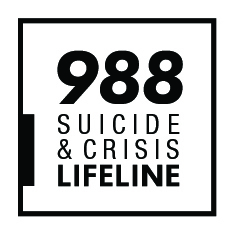Community Partners
West Michigan Community Mental Health values the communities in which we work and live. By collaborating with those around us, we work to promote our vision of building a stronger, closer community — one that is more informed, inclusive, and supportive to those we serve.
West Michigan CMH partners with several entities and organizations in our community. These ties help spread access to our services and provide valuable training programs and resources to those who are interested.
By sharing resources and educational training in behavioral health across our community, we know we can strengthen support and ultimately improve lives. Therefore, we are proud to make all of our West Michigan CMH and community partner training programs available to anyone in our Lake, Mason, and Oceana County communities.
More information on our partners and training programs can be found below.
Lakeshore Regional Entity
The Lakeshore Regional Entity is the public behavioral health plan for people with mental illness, developmental disability, and substance use disorders in the counties of Allegan, Kent, Lake, Mason, Muskegon, Oceana, and Ottawa.
The Lakeshore Regional Entity comprises 5 community mental health agencies across these counties:
Allegan Community Mental Health Authority (Allegan County)
HealthWest (Muskegon County)
Network 180 (Kent County)
Ottawa County Community Mental Health (Ottawa County)
West Michigan CMH (Lake, Mason, and Oceana Counties)
Learn more about the Lakeshore Regional Entity.
Department of Justice and Mental Health Collaboration Program
West Michigan CMH and local law enforcement in Lake, Mason, and Oceana counties are joining forces to help those in our community. Together, we’ve been awarded a grant through the US Department of Justice to help provide individuals lodged in jail access to adequate services for their mental health and substance use disorder needs.
To learn more about our strategic plan to connect individuals in our local criminal justice system with the services they need, please see our press release (PDF).
Jail Diversion Field Guide
The document is developed by the Jail Diversion Collaborative of Lake, Mason and Oceana Counties to provide a comprehensive training resource for local partner agencies directly involved in these procedures.
It is designed to assist behavioral health and criminal justice professionals in better understanding their respective roles. The intention is to document methods for coordinating efforts to improve our community’s response to individuals with mental illness and co-occurring substance use disorders who interact with the criminal justice system through enhanced jail diversion, crisis response, and connection to services and supports.
For access to the Jail Diversion Field Guide please click here: Jail Diversion Field Guide (7.20.23)
Mental Health First Aid
Mental Health First Aid is a public education program designed to introduce participants to risk factors and warning signs of mental health problems. Through this education, they build community understanding of mental health and inform participants of supports they can turn to when in need.
Learn more about the Mental Health First Aid program for adults.
Learn more about the Mental Health First Aid program for adolescents.
 or
or 